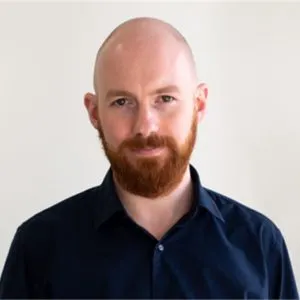One of the unique selling points of the Web3 metaverse has always been the idea of interoperability; that users can port their NFTs between metaverse platforms. But to date, interoperability between metaverse platforms has been very limited.
That could be set to change, with Bored Ape Yacht Club founder Greg Solano, aka Garga, telling Decrypt, “We’re going to be publishing our object standards as they become available; some are coming very soon, and others will be coming over the course of the next year.” Those object standards will, Solano said, be “open standards that anyone can adopt, and can build on top of.”
The idea is that a designer can create a 3D character model for BAYC’s Otherside metaverse and, “just as easily take it to another metaverse.” And vice versa (or metaverse-a).
Bored Ape Yacht Club owner Yuga Labs, the company behind the Otherside metaverse, wants to build a “truly interoperable” metaverse; one that “is going to allow for you to be able to play as whatever character it is that you are,” Yuga Labs CEO Nicole Muniz told Decrypt. “Maybe you're an ape. Maybe you’re not; maybe you’re not a Yuga property, that’s okay.”
The goal is ultimately to create an open world in which, “everyone is able to have a shared fun experience,” she added.
Building a metaverse creator economy
What sets Otherside apart from other metaverse efforts, Muniz said, is that “it's rooted in the mythology, in the lore—which will lead to gameplay and other shared experiences that our community have.”
The other selling point for an open metaverse, as opposed to a Web2 "walled garden" such as Fortnite or Roblox, is “true ownership,” said Solano.
“The best innovations to come out of gaming in the past 20 years have been from modding communities,” he said. “Some of the biggest games in the world started off as some anonymous developers building on top of some other platform.”
What the open metaverse offers those creators is a means of monetizing their work beyond begging for Patreon donations or YouTube subscriptions, he explained.
“If there was a native incentive structure, where they can own assets and provenance there, then we hopefully create the creator economy that actually drives value back to creators, just by virtue of the existing incentive structure.”
Yuga Labs isn’t the only metaverse company pushing for open standards.
Earlier this month, the Open Metaverse Alliance (OMA3) launched with a vision to ensure that the metaverse “remains open and becomes truly user-owned,” part of which includes a working group to develop interoperability standards.
But while Yuga Labs was initially announced as a member company of OMA3, it was later clarified that its inclusion in the group has yet to be finalized.





